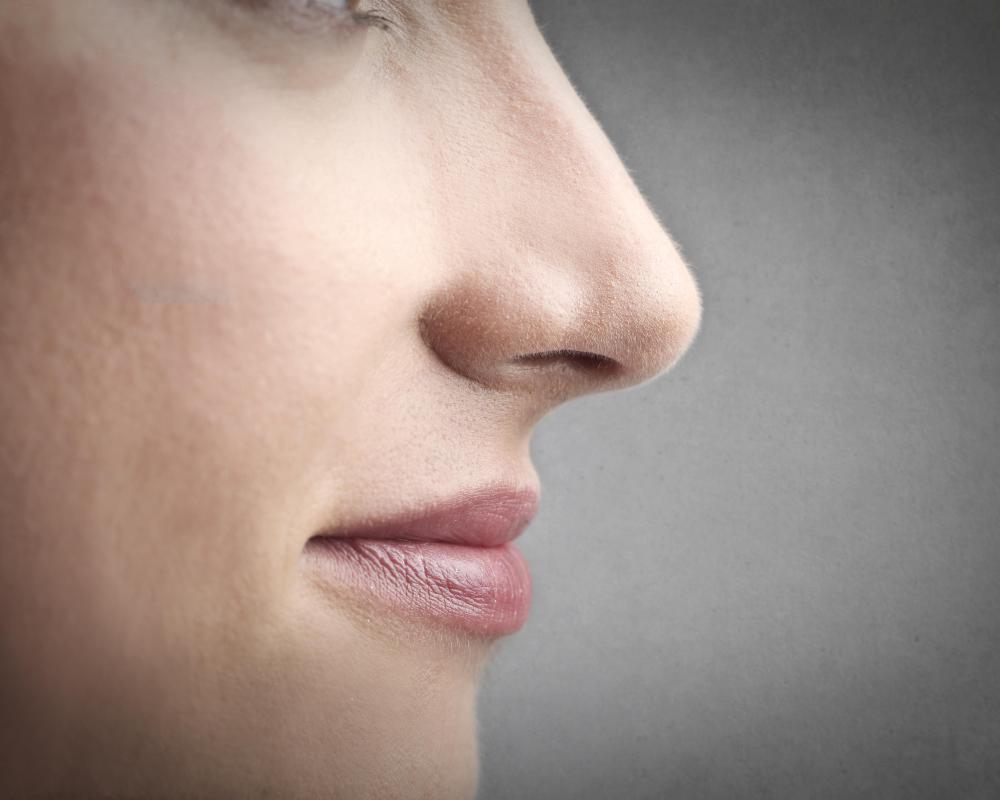At TheHealthBoard, we're committed to delivering accurate, trustworthy information. Our expert-authored content is rigorously fact-checked and sourced from credible authorities. Discover how we uphold the highest standards in providing you with reliable knowledge.
What is the Cribriform Plate?
The cribriform plate is the name given to a specific area of the human skull. It is part of the ethmoid bone, which is responsible for separating the brain from the nasal cavity. It attaches to a structure located on the frontal bone of the skull known as the ethmoidal notch. The roof of this structure also connects to the nasal cavities in the skull.
The crista galli extends in an upward direction from the middle of the cribriform plate. This process is triangular in shape and holds a strong resemblance to the comb of a rooster. Attached to the crista galli is falx cerebri. This is a fold of fibrous tissue that works to separate the two areas of the brain known as the cerebral hemispheres.

Two projections known as the alae are also connected to the cribriform. These projections are connected to depressions located in the frontal bone. The grooved, narrow cribriform plate also has the function of supporting the olfactory bulb. This is the structure found in the nasal cavity which assists the body with the action of perceiving various odors.

There are openings in the cribriform plate known as foramina. These openings create the passageway for the nerves involved in the ability to smell and distinguish odors. These nerves are known as the olfactory nerves. Other nerves, including those that supply the nasal septum, also pass through this plate.
As is the case with any area of the skull, there are dangers involved to the cribriform plate in the instance of head injury. The same issues that can potentially develop in this area from a head injury are also possible following any type of surgical procedure in the areas surrounding the cribriform plate. This is particularly true when the surgical procedure involves the sinuses.

Loss of smell often occurs with an injury to this area of the skull. Trauma to surrounding areas also have the potential to have the same effect. In the case of a severe injury, such as a fracture involving the cribriform plate, there can be problems with cerebrospinal fluid leakage. This is the clear liquid that is found in the spinal column as well as in certain areas of the brain. Immediate medical assistance is required for this type of injury, as permanent brain damage or even death could occur if treatment is avoided or delayed for too long.
AS FEATURED ON:
AS FEATURED ON:















Discussion Comments
Is it possible for a CSF leak to heal spontaneously?
@sunnySkys - Head injuries can cause all sort of problems! It's unfortunate that your friend lost his sense of smell but it could have been much worse.
When I was growing up I knew someone who had lost their sense of smell due to a head injury. I never really understood quite how that happened. Reading this article really helped me put two and two together: he must have injured his cribriform plate.
Not have a sense of smell is really rough. For one think, your senses of smell and taste are intertwined. So if you don't have a sense of smell, you don't really have a sense of taste either. Plus there are all those sensory cues that we get from our sense of smell, including such things as smelling smoke to let us know there is a fire!
I find it really scary that losing one of your senses can be the possible result of a head injury.
Post your comments